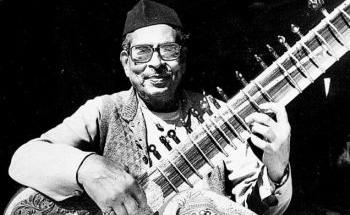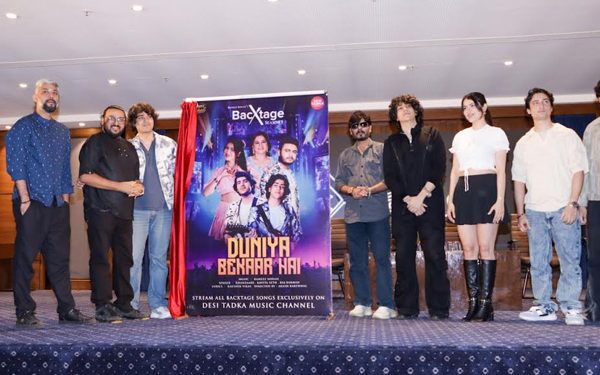NEW DELHI: His rendition of his favourite instrument, the sitar, belies his age, and his enthusiasm for continuing the tradition set by his Guru appears endless.
Pandit Debu Chaudhri, who is in his late seventies, astonished connoisseurs of music when he played his own rendition of Kalyani Bilawal as part of a concert to pay a rare tribute on his Guru Ustad Mushtaq Ali Khan’s 101st birth anniversary.
Recipient of innumerous awards including the coveted Padma Bhushan, Sangeet Natak Academy Award, Raseswar Award, Sahitya Kala Parishad Award and innumerous other awards all over the world, Panditji is one of the senior most sitar maestros of India. It is said that ‘Pandit ji’s Sitar speaks’.
With his assorted ‘raagmala’ he took the listeners to a rare musical journey and showed what training at the feet of the Guru meant.
Staring with ‘Alaap’ in Shudh Kalyan, he took the entranced audience through his rendition of gada in Vilambit in Kalyani Bilawal which is his own creation, madh laya in Raga Yaman, ek taal in raga Shyam Kalyaan, dhrut Bihaag, and Sohini (which was made famous by the ‘Prem Jogan ban ke’ in ‘Mughal-e-Azam’ by Ustad Bade Ghulam Ali Khan).
The maestro was performing at the concert held by the Ustad Mushtaq Ali Khan (UMAK) Centre for Culture, which also featured renowned and talented vocalist Begum Parween Sultana.
Begum Parveen Sultana used her mellifluous voice to weave magic through Raga Maru Bihaag, Megh Malhaar, Pahari Thumri, and her composition ‘Dayani Bhawani’ in Raga Bhairavi.
She is one of the most cherished renowned female vocalists of the country whose voice is almost unmatched all across the world. The recipient of numerous awards across the world has regaled the audience world over.
UMAK Centre for Culture has over the years earned a very good name for itself as one of the foremost and rare institutes of the capital imparting quality education to it’s students with special emphasis to promoting the rich Indian classical music. It has produced not only some young Indian talented students but also trained a number of foreign students including some Indian Council for Cultural Relations scholars.
UMAK Centre for Culture has been named after the great maestro of Sitar, Sitar Sudhakar Ustad Mushtaq Ali Khan Sahab, who was known as a ‘Musician’s Musician’, who devoted his whole life to the service of music.












